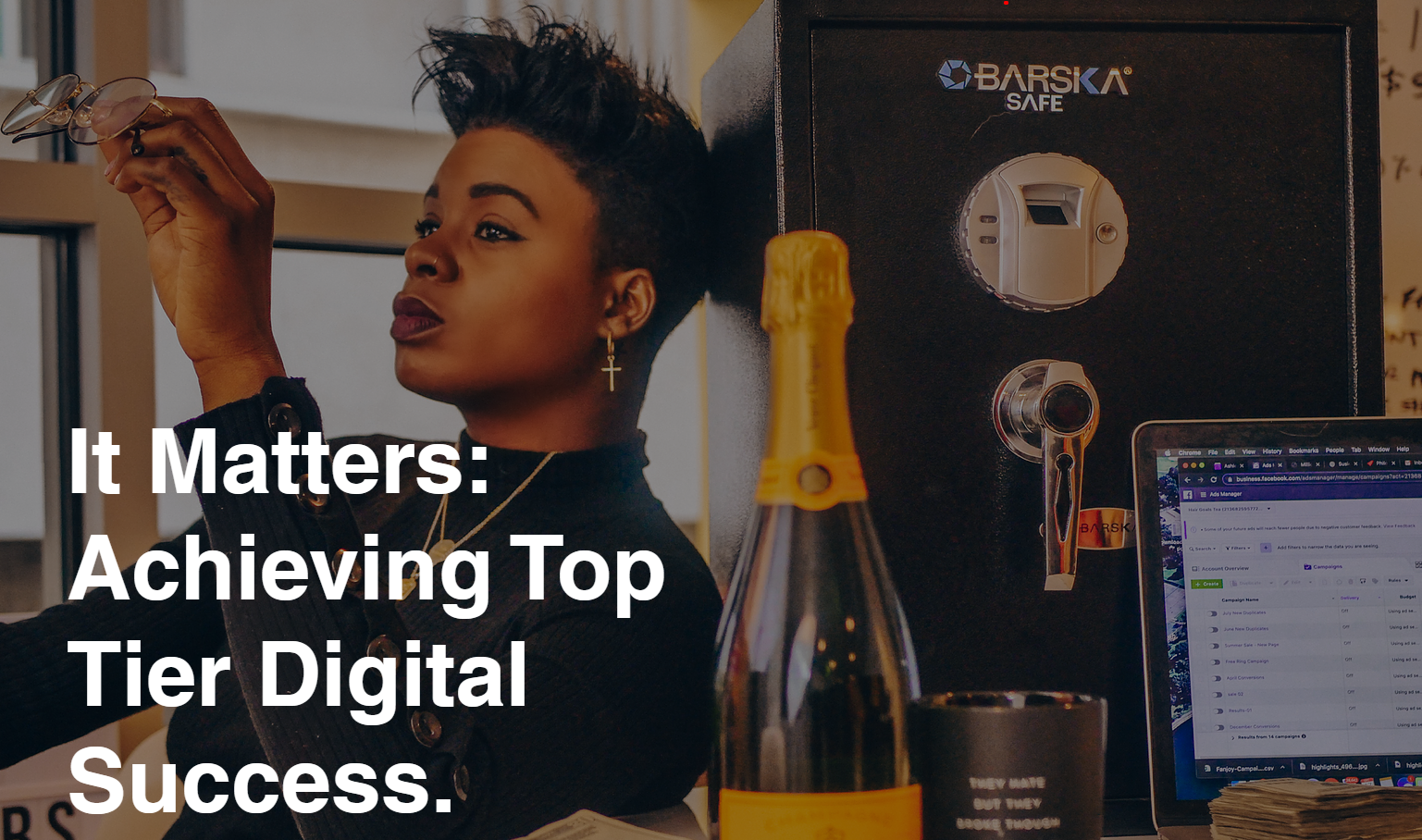
Ashleigh Warren became an expert in social media ads, then parlayed her knowledge into a lucrative freelance business with celeb clients which quickly turned into a well staffed Santa Monica-based company that generated $50M for clients. Then, one day, she walked away from it all but says she has no regrets.
Here’s her story.
Forbes magazine recently turned to Ashleigh Warren for social media marketing advice. This dynamic boss uses her expert skills to bring in millions for her celebrity clients while running her top social media adversiting agency So Social.
But not too long ago, Warren was a “broke barista living paycheck to paycheck” making a shift into the world of marketing. She had no idea back then that she’d be really really good at it and within in two years and a passion for all things media, she would find her own agency and begin working with some of the world’s biggest new media celebrities like Mike Tyson, David Dobrik, Jake Paul, Scott Disick, Dan Bilzerian and others.
In addition to generating over $50 million in revenue for her clients, Warren, who still isn’t even 30-years old yet, was able to grow her own brand and start supporting communities and causes she believes in as a proud bisexual woman.
So although this brilliant force to be reckoned with is pretty busy these days, she still finds time to be a resource for marginalized people who want to start their own businesses and it’s with that grace and spirit of generosity that she agreed to offer her story as a black female entrepreneur with Jeneba Speaks and give helpful advice to other women who are on their entrepreneurship journey
Let’s start from the beginning…well sort of… (and in her own words, as told to Jenebaspeaks.com)
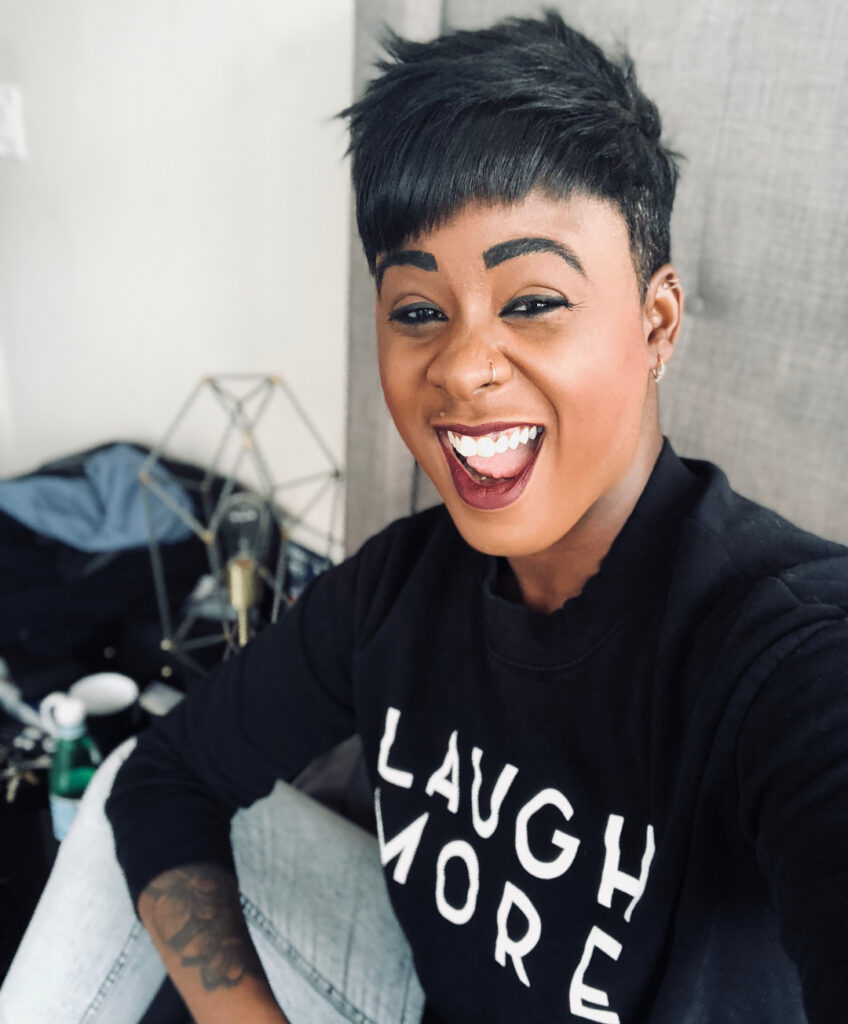
How did you secure your celebrity influencer clientele?
Many of the influencers I have been blessed to work with are through my client Fanjoy, a company that produces merchandise for creators for fans to enjoy.
Chris Vaccarino, the CEO, is nothing less than a creative genius and an even better human being. I’m grateful for the opportunity to work alongside him for years and manage all paid media for his clients.
Other influencer clientele has been word of mouth.

You successfully scaled your company enough to hire staff and secure office space in Santa Diego* (moved to LA about 2 years ago), then you fired everyone, closed shop and retreated to a smaller staff and now remote work with a small remote staff. Can you talk about the difference between the both? Also, what are tThe upsides to having a physical space and big staff and the downsides.
Personal preference. You have to decide who do you want to be, more than what do you want to do and figure out what best serves that vision.
I started my first agency at age 24, full staff, completely remodeled office, the works. Maybe, it’s not for everyone, but for me, 24 was too young. I had talented people working for me.
The problem was I wasn’t ready to manage all aspects of running an agency. I tried to do it all and did not make the right leadership hires to help me. I needed to learn I could not do it all, and I needed to find the core people who could help me sustain and scale all aspects of owning an agency.
We tried to be all things to all people and too quickly at that.
I realized in the process that I didn’t want all the clients, I only wanted the best clients that I, one: believed in and, two: knew I could help. I’ve learned to not just take money for money. If it doesn’t move me, inspire my creativity or challenge me, I’ll pass on that client every time now.
The upside of having big everything is always your ego, which is never sustainable.
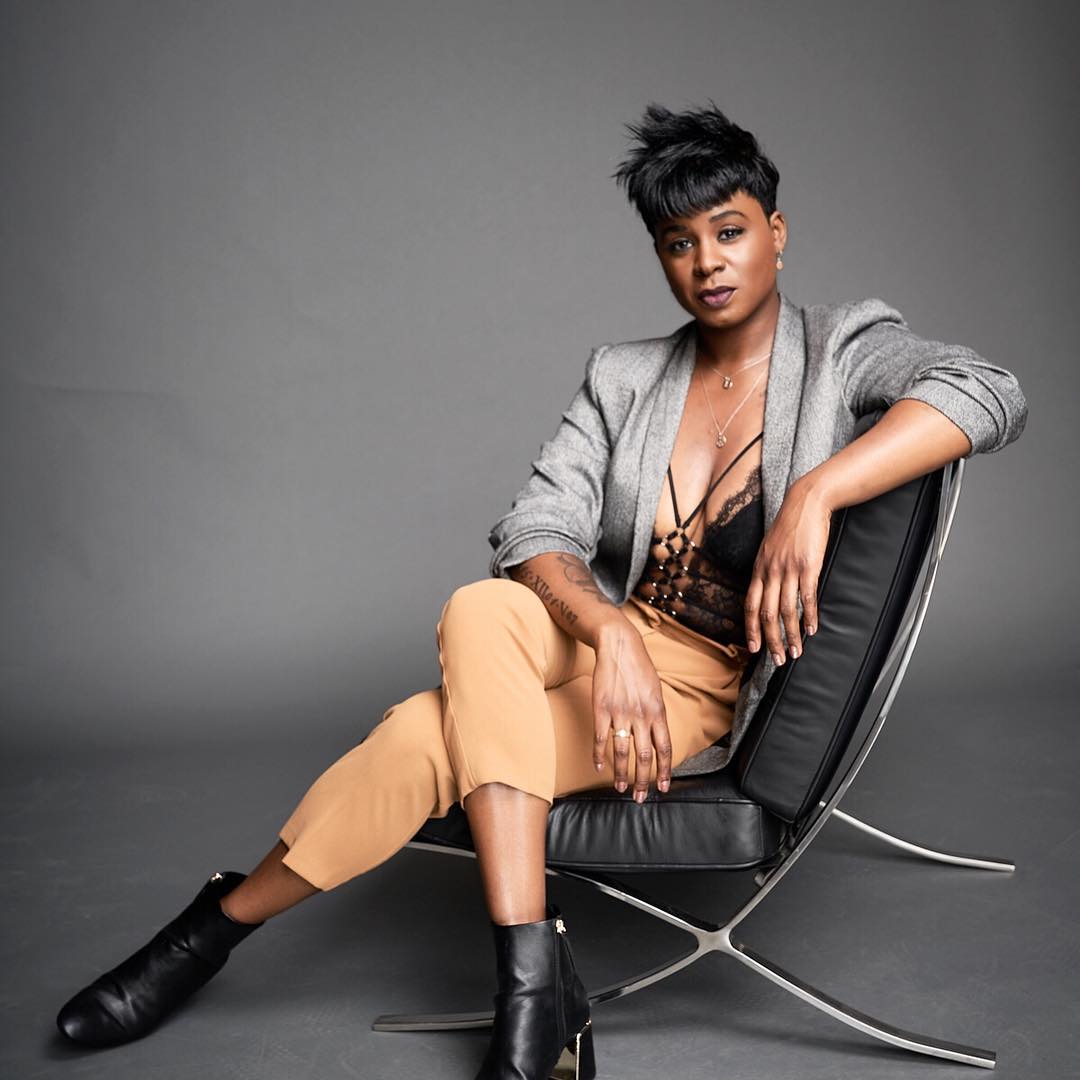
I learned to start asking myself why am I doing this? Why do you want this? Why do you need XYZ? I realized much of building a bigger agency had to do with my ego. You make stupid decisions when they don’t come from a place of true purpose.
I really don’t see a downside for me not having some big agency because that was the reason I quit my “big agency job” in the first place. I didn’t like it. Things fall through the cracks when you have hundreds of clients. They become just numbers unless they are the cream of the crop.
Your people are incentives for the wrong reasons. They have too many accounts so they can’t give them all the proper attention needed to scale. The best performing accounts get the most attention and best people and now it’s more about the money than results.
Which business model would you recommend for starting companies?
I wouldn’t recommend one over the other really, I would recommend having honest conversations with yourself and always ask yourself why you are doing anything. I think always prepare for the worst and hope for the best, start small, save money and always leave space for growth. You don’t need to over-impress clients with a shiny-big office and if that’s required to sell that client, I don’t want them anyway.
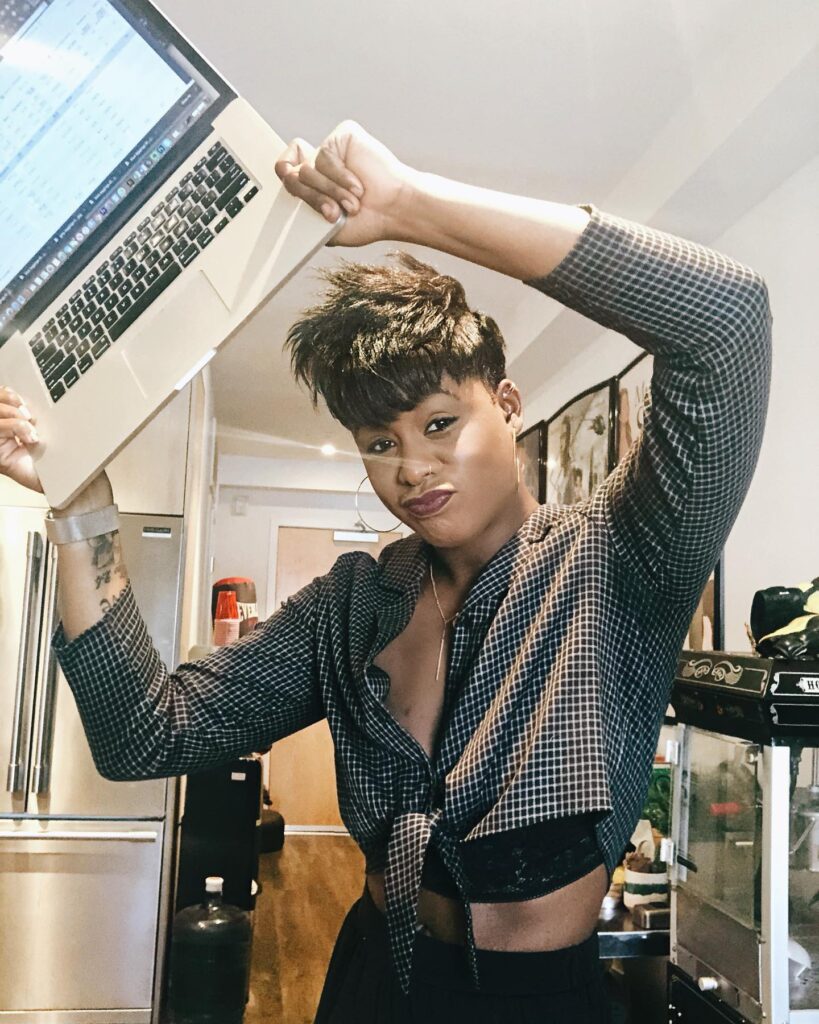
What advice would you give to young female and black female entrepreneurs who do not have access to capital to build their companies or dreams?
Remember that no one can be you. You have plenty of value to bring to anyone’s table if you choose. Consistently expand your mindset. Be prepared to work hard and see it as an honor that you get to do so. I invest a lot of time into reading books and blogs by people who live lives I aspire to have one day. Too many people make excuses for why they are where they are in life. Remember that life happens to EVERYONE. We can’t pick the cards we are dealt, but we can always choose what we do with them.
Someone out there always has it worst, and is still probably crushing life regardless. I’ve always tried to live a zero excuse life. A lack of money is not why success is limited; it’s always due to a limited mindset, which ultimately limits your strategic thinking and ability to execute.
I throw a lot of different things at the wall, all the time, I don’t just hope this one thing works out. I am always building more than one thing, never just putting my eggs into one basket.
Also remember patience is a crucial part of life and business, it would be amazing if everything happened overnight, but that just does not happen. It takes time, effort, tenacity and a willingness to take the time to attempt to perfect the process.
I relate most of business to professional athletics: the hours of practice, of failure, of faith, of trying new things is why these men and women are some of the best athletes the world has ever seen.
A successful business requires the same level of commitment and perseverance.
This is why I laugh when people say, “I want to be an entrepreneur!” because they often times don’t know what they are asking for.
I think entrepreneurship really chooses you and it keeps you up at night until you finally tell it, yes, ok I will do this.
Lastly, always be honest with yourself. Ask yourself, “did I give this my 100% best and am I truly managing my time to the best of my ability?” I regularly ask myself that and quickly realign if I need to.
Do you have any tips for those who want to become influencers?
Yeah, it’s not enough to want to be famous. Define your why and then work on your what. Speak from and to your passions, your following will be authentic and then “your people” will naturally gravitate…if you make content a quality priority.
Produce as much content as you possibly can and don’t focus just on one channel.
And when it’s “not working” ask yourself the hard questions: “Did I give this my 100% best and am I truly managing my time to the best of my ability.”
What has been your biggest challenge to date?
Finding like-minded, like-hearted people. I am always looking to expand my circle of fellow business owners and entrepreneurs. I recently moved to LA and I’m hoping to find more people who inspire me with how they live their lives and how they grow their businesses.
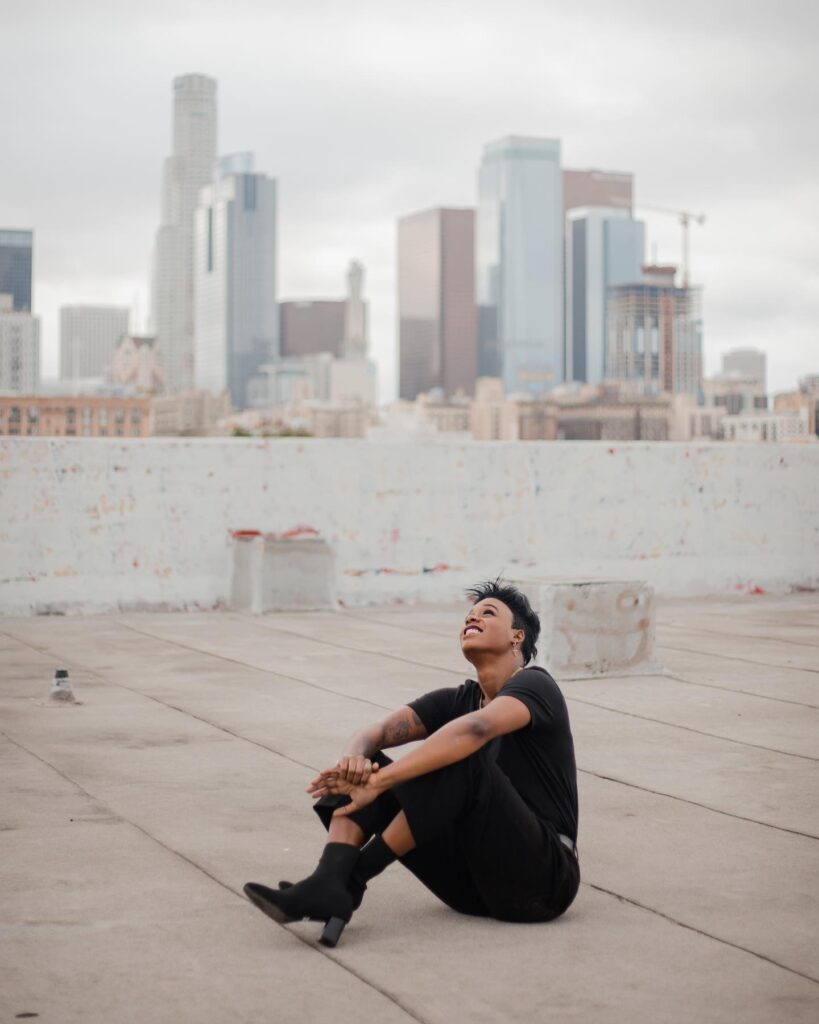
Do you have any other big regrets?
Other than letting my ego get in the way of my true potential no. I think that is something I will always regret. I made mistakes I did not have to make, however, in a weird way I am happy I did because I get to freely share those mistakes with others so they don’t have to make them.
What is your biggest accomplishment?
I can’t share that one yet 😉 in the works, but I think really building a sustainable life working for myself and being able to maintain and grow that over the past 5 years is something I’m very proud of.

What advice do you have for someone thinking about jumping ship from their corporate jobs as you did and starting on their own?
Don’t jump. Strategically sail.
Work both until your freelance gig is drastically outperforming your work. It will save you a lot of stress.
Always plan for life to happen, I didn’t quit my job until I had six months of salary saved from working for myself. I quit when I was consistently averaging over $20k,000 on my own for four months.
Up until then, I was still a full-time employee and student, so I technically had 3 full-time jobs. It was difficult, sure, but I was determined. Decide on a number that makes you feel comfortable, but also pushes you to perform and don’t quit until you hit that.
And there you have it! An undertold story about perseverance and tenacity and learning when to know you’ve gone over your head and how to pivot!
Thanks for the gems. There were so many in Ashleigh’s story, weren’t there? What was your fave? Hit me up at @JayJayGhatt on Twitter, Instagram, YouTube or Facebook!
Jay Jay Ghatt is also editor at Techyaya.com, founder of the JayJayGhatt.com and JayJayGhatt.com where she teaches online creators how to navigate digital entrepreneurship and offers Do-It-For-You Blogging Service. She manages her lifestyle sites BellyitchBlog, Jenebaspeaks and JJBraids.com and is the founder of BlackWomenTech.com 200 Black Women in Tech On Twitter. Her biz podcast 10 Minute Podcast is available on iTunes and Player.fm. Follow her on Twitter at @Jenebaspeaks. Buy her templates over at her legal and business templates on Etsy shop!


